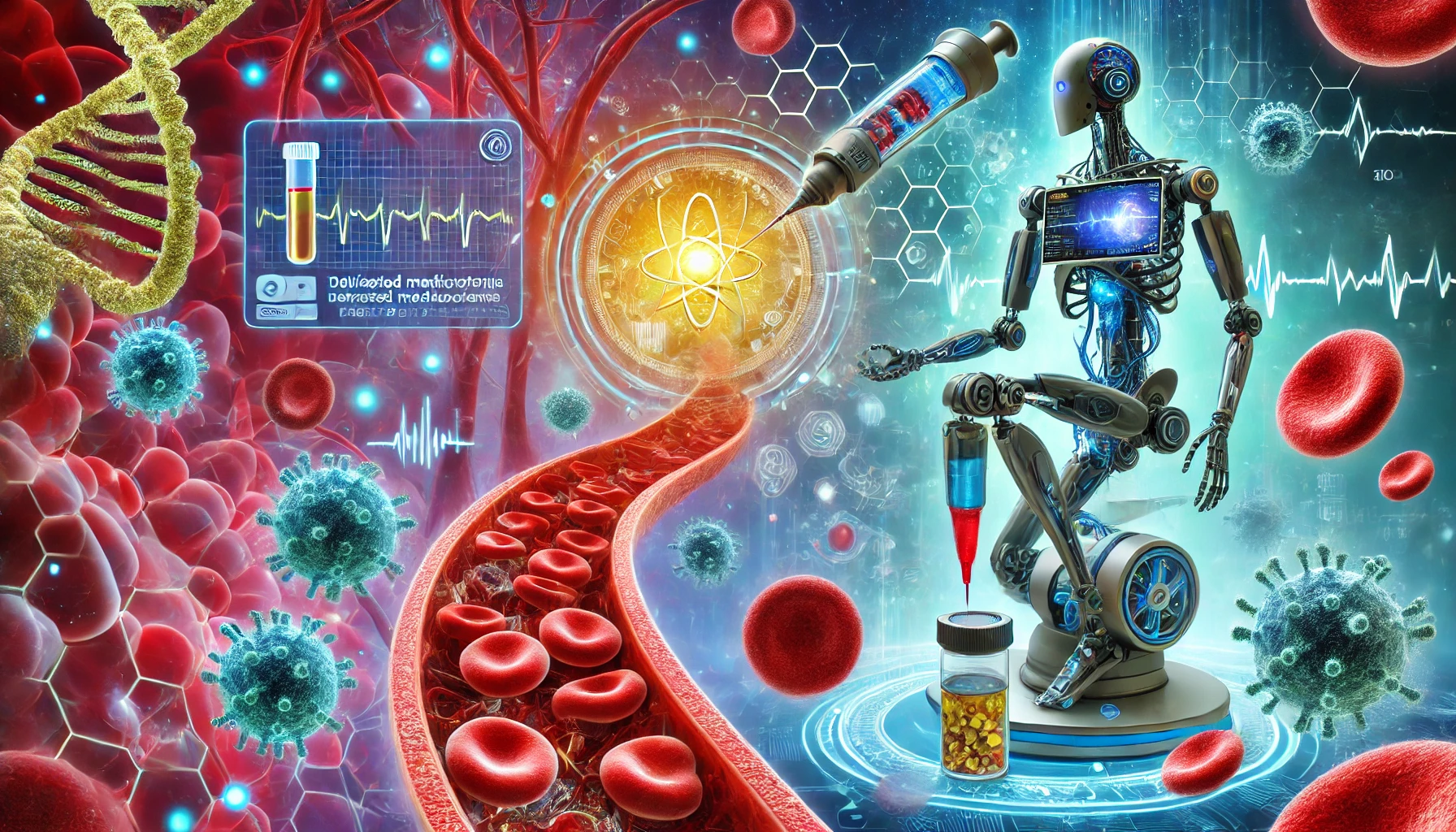Nanotechnology, the science that manipulates materials on a nanoscale, has revolutionized medicine by offering more precise diagnostics and more effective treatments. By operating on a molecular scale, nanotechnology enables interventions directly in cells, transforming the way we deal with various diseases.
One of the most significant advances is targeted drug delivery. Nanoparticles designed to reach specific cells reduce side effects and increase the effectiveness of treatments, especially in cancer therapies. In addition, nanosensors have been used to detect diseases in early stages, improving the chances of a cure.
This transformative impact goes beyond treatments. Nanotechnology is being integrated into medical devices such as prosthetics and implants, making them more durable, lightweight, and biocompatible. These advances promise to redefine medical practice in the coming years.
Advances in Nanotechnology: A Revolution in Health
Advances in nanotechnology have led to disruptive innovations in the field of health. In oncology, gold nanoparticles are being used to perform photothermal therapies, which destroy cancer cells without affecting healthy tissues. This minimally invasive method has shown promising results in clinical trials.
Another innovation is the use of nanorobots. These microscopic devices can perform precise procedures inside the body, such as removing arterial plaques and repairing damaged tissues. This technology reduces the need for invasive surgeries, speeding up patient recovery.
In addition, nanomaterials are being explored to develop more effective vaccines. By using nanoparticles as adjuvants, immune responses can be enhanced, offering stronger protection against emerging diseases.
How Nanotechnology Is Redefining Diagnostics and Treatments
Advancements in nanotechnology are significantly transforming diagnostics and treatments. In diagnostics, nanosensors are being integrated with imaging techniques to provide detailed information about the human body. For example, nanoparticle-based contrast agents offer clearer images in magnetic resonance imaging, facilitating tumor identification.
In the field of therapies, nanocapsules have revolutionized drug delivery. These structures transport drugs directly to target cells, reducing damage to healthy tissues. In neurodegenerative diseases, such as Alzheimer's, these capsules are helping overcome the blood-brain barrier, allowing medications to reach the brain more effectively.
Furthermore, nanofibers are being used in tissue engineering to regenerate organs and treat complex wounds. These advancements have the potential to drastically change patients' health outcomes.
Nanotechnological Innovations in the Medical Field
Several nanotechnological innovations are reshaping the field of medicine. Among the most notable is the creation of nanocomposite materials for prostheses and implants. These materials are lighter, stronger, and biocompatible, increasing durability and reducing the chances of rejection.
Another area of focus is regenerative medicine. Nanotechnology is being used to create scaffolds that assist in tissue and organ regeneration. These scaffolds mimic the body's natural environment, promoting healing and cellular reconstruction.
Nanotechnology has also been crucial in combating hospital infections. Nanomaterials with antimicrobial properties are being incorporated into medical devices, such as catheters and surgical instruments, reducing the incidence of infections.
Nanotechnology and Medicine: The Future of Healthcare
The future of healthcare is being shaped by nanotechnology. Smart implants based on nanomaterials are being designed to monitor and release drugs in a controlled manner, adapting to the specific needs of the patient.
In addition, wearable nanodevices promise to revolutionize health monitoring. These devices can measure physiological parameters in real time, such as glucose levels and blood pressure, allowing for early and personalized interventions.
The customization of treatments will also be a hallmark of the future. With the use of nanotechnology, medications can be tailored to individual genetic and metabolic characteristics, increasing effectiveness and reducing side effects.
Nanometric Technologies that Are Changing Medical Practice
The integration of nanometric technologies is redefining medical practice on various fronts. In diagnosis, nanotechnology-based biosensors are being developed to rapidly detect infectious diseases, even in locations with limited infrastructure.
In the treatment of cardiovascular diseases, nanoparticles are being used to remove plaque from arteries and prevent heart attacks. In dermatology, nanoparticles are being incorporated into creams and therapies to treat conditions such as psoriasis and skin cancer more effectively.
In addition, nanotechnology is driving research in transplants. Nanocoatings are being applied to artificial organs to improve their acceptance by the immune system, increasing the success of transplants.
Nanotechnology and Its Revolutionary Applications in Healthcare
Nanotechnology has provided revolutionary advancements that are transforming the health of millions of people. Combining precision, innovation, and customization, this technology is opening new frontiers in medical care.
Among the most impactful applications are nanorobots, which promise to perform diagnostics and therapies directly in the human body. Additionally, targeted drug delivery and advancements in tissue engineering highlight the transformative potential of nanotechnology.
However, challenges such as regulation, costs, and safety still need to be overcome. Collaboration between scientists, doctors, and governments will be essential to ensure that these innovations are accessible to all.
Conclusion
Nanotechnology is revolutionizing medicine by offering innovative solutions for diagnostics, treatments, and healthcare. With advancements ranging from targeted drug delivery to organ regeneration, this technology promises to improve the quality of life for millions of people.
Although challenges remain, the potential of nanotechnology to transform medicine is undeniable. As more research advances and new applications emerge, the future of healthcare appears increasingly promising and personalized.
FAQ
1. What is nanotechnology?
It is the manipulation of materials at the nanoscale, allowing for innovations in various areas, including medicine.
2. How does nanotechnology benefit health?
Through precise diagnostics, targeted treatments, tissue engineering, and advanced medical devices.
3. What are nanorobots?
They are microscopic devices designed to perform specific tasks inside the human body, such as removing arterial plaques.
4. What are the challenges of nanotechnology in medicine?
High costs, regulation, safety, and accessibility are the main challenges.
5. What is the future of nanotechnology in medicine?
The future includes personalized treatments, wearable devices, and advances in tissue and organ regeneration.




